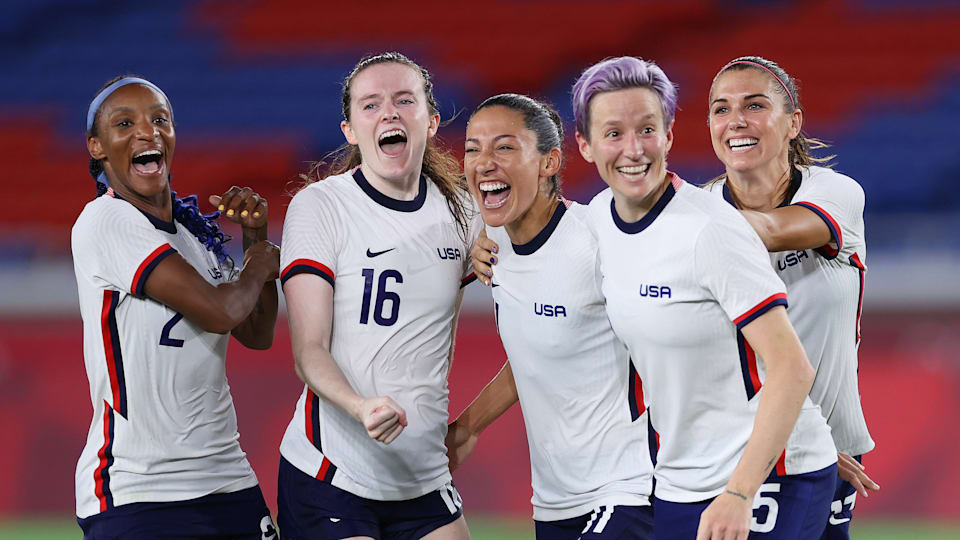
The United States Soccer Federation has reached a new collective bargaining agreement with the United States Women's National Team Players Association (USWNTPA) and the United States National Soccer Team Players Association (USNSTPA), the federation announced Wednesday (18 May). The agreement ends a years long dispute in which the U.S. Women's National Team has sought equal pay from the federation.
“This is a truly historic moment. These agreements have changed the game forever here in the United States and have the potential to change the game around the world,” said U.S. Soccer President Cindy Parlow Cone. “U.S. Soccer and the USWNT and USMNT players have reset their relationship with these new agreements and are leading us forward to an incredibly exciting new phase of mutual growth and collaboration as we continue our mission to become the preeminent sport in the United States.”
The agreement runs through 2028 and "achieve[s] equal pay through identical economic terms," according to the release.
"The accomplishments in this CBA are a testament to the incredible efforts of WNT players on and off the field,” said USWNT player and USWNTPA President Becky Sauerbrunn. “The gains we have been able to achieve are both because of the strong foundation laid by the generations of WNT players that came before the current team and through our union’s recent collaboration with our counterparts at the USNSTPA and leadership at U.S. Soccer.
"We hope that this agreement," Sauerbrunn continued, "and its historic achievements in not only providing for equal pay but also in improving the training and playing environment for National Team players will similarly serve as the foundation for continued growth of women’s soccer both in the United States and abroad.”
The agreement standardises rates in three main categories: on-field base and performance pay; World Cup prize money; and commercial revenue share. In addition, it guarantees childcare and retirement benefits to senior national team players.
Further, the deal extends to venue and field surfaces, accommodations, staffing, travel and more.
“They said equal pay for men and women was not possible, but that did not stop us and we went ahead and achieved it,” said Walker Zimmerman, member of USNSTPA leadership group. “We hope this will awaken others to the need for this type of change, and will inspire FIFA and others around the world to move in the same direction.”
